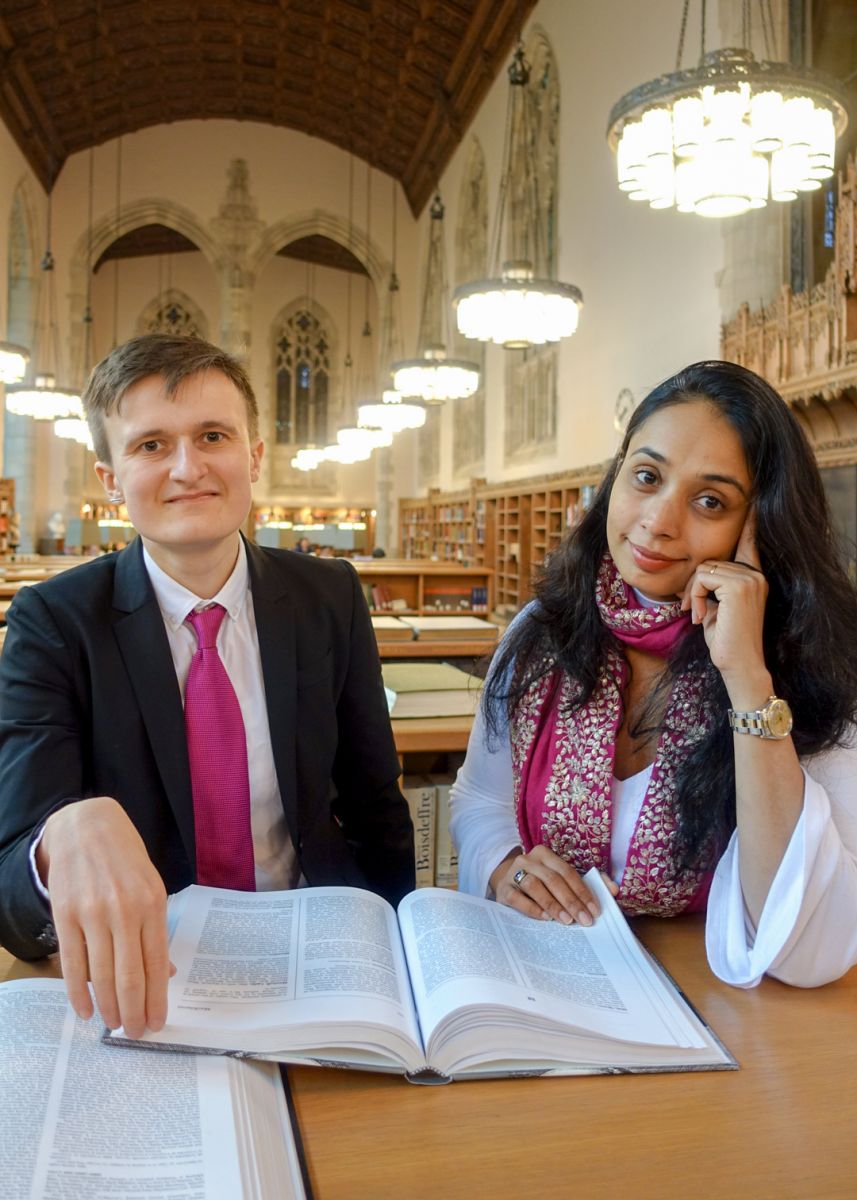Teaching Excellence at Yale
Student collaboration promotes social and academic literacy
Marta Figlerowicz and Ayesha Ramachandran, Assistant Professors of Comparative Literature, get their students engaged with course content by prompting regular reflection. In their co-taught course Selfhood, Race, Class and Gender, students reflect on personal connections they have with class concepts, and approaches. “Students reflect on intersections of content with their own lives and thinking,” said Ramachandran. For instance, students compare written correspondence between historical figures with modern social media. “Doing so helps them engage more intentionally with class content and peers.” As one student remarked, this approach “made me much more conscious of the ways in which I present myself, and the ways I perceive other selves in return.”

Self-reflection does not always mean quiet introspection. Students are asked challenging questions in class that invite personal and scholarly responses. Students get into groups and pool their collective experiences and ideas. In these discussions, they explore class material in relation to their own lives, interests, and assumptions. With instructor facilitation, these discussions can become energetic debates. Figlerowicz and Ramachandran are often struck by their students’ “playfulness and willingness to experiment” with arguments and opinions. By testing personal ideas in a friendly environment, students learn to articulate their arguments with intellectual depth and personal accountability.
Figlerowicz and Ramachandran also design individual assignments that mix reflection with scholarly work. Students produce original content like short films and portrait series (paired with explanatory text) that respond to class discussion with personal perspectives. The co-instructors supply a grading rubric that addresses creative originality, depth of thought, and contribution to course themes. These final projects showcase how reflection can help students connect with content and develop their voices as thinkers.
Research and resources exploring the effectiveness of self- reflection for student learning:
Jaime L. Sabel, Assistant Professor of Biological Sciences at the University of Memphis, et. al., explain how the use of reflective questions in large lecture courses can deepen student academic literacy, understanding of classroom content, and sense of self as learner. Read the study “Introductory Biology Students; Use of Enhanced Answer Keys and Reflection Questions to Engage in Metacognition and Enhance Understanding” in CBE—Life Sciences Education.
Margot Belet, Fellow at the University of Leuven, explores how tying course content to relevant areas of student lives can positively impact student engagement and achievement. Read the study “The Importance of Relevance to Student Lives: The Impact of Content and Media to in Introduction to Sociology” in Teaching Sociology.
In-class self-reflection is facilitated by intentional class structure and discussion, and the Poorvu Center offers strategies for effective class discussion. The Poorvu Center also offers strategies for cultivating metacognition, where students reflect on their own learning strategies.
Share with us or a colleague:
View or download a PDF version below. Send us your feedback and suggestions. To opt-out/opt-in to this newsletter, please visit Yale’s messaging service website and follow the on-screen instructions (see instructions in the sidebar above).
